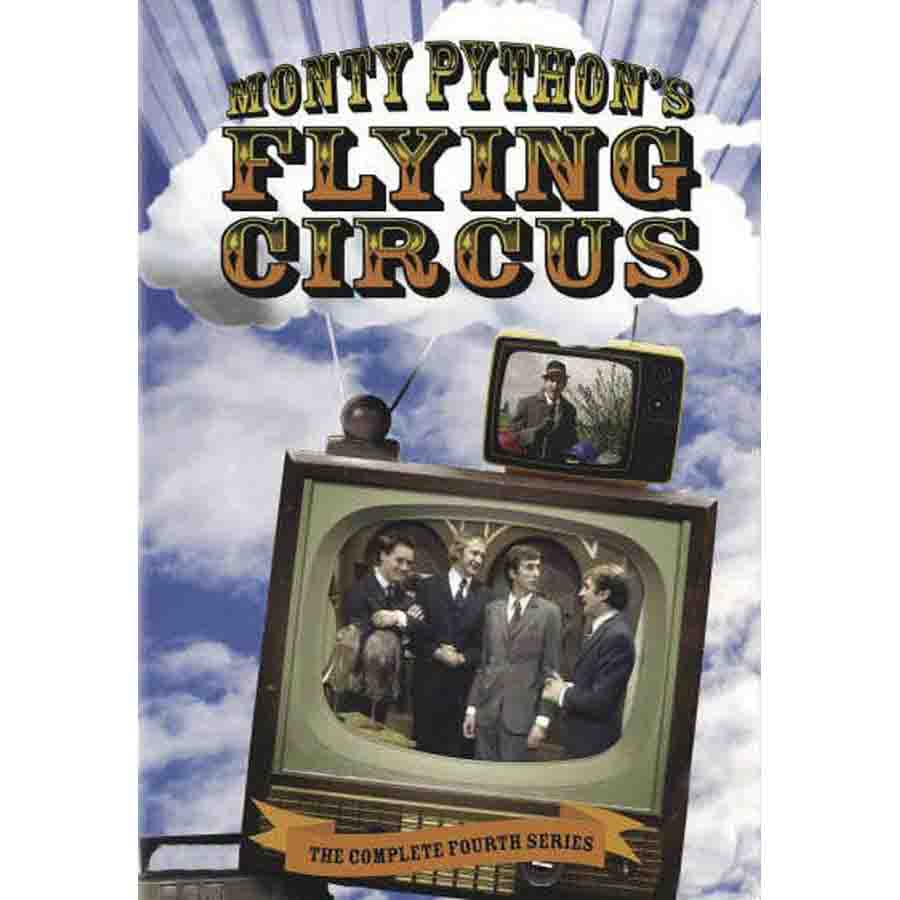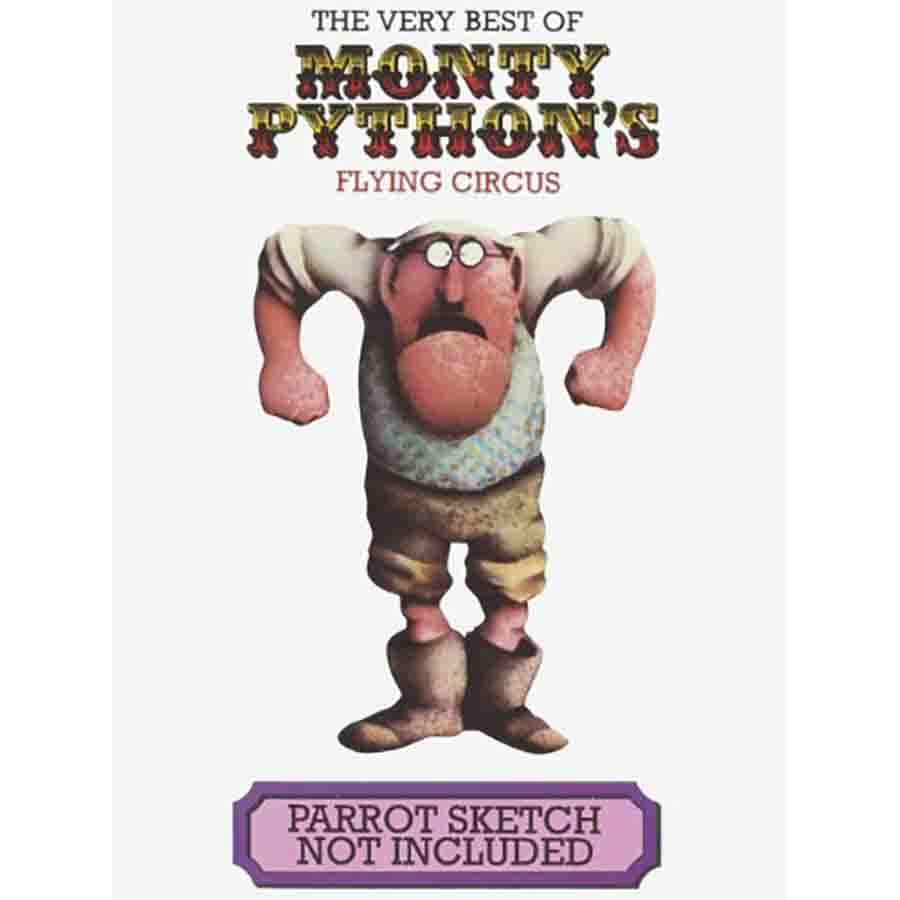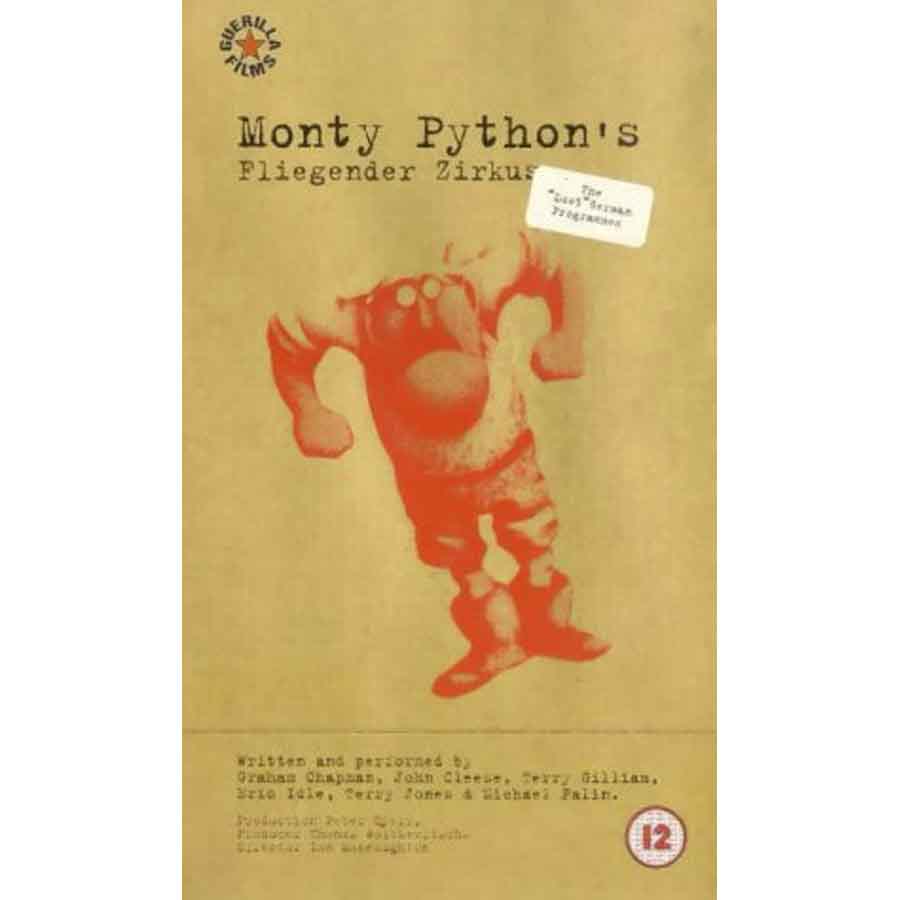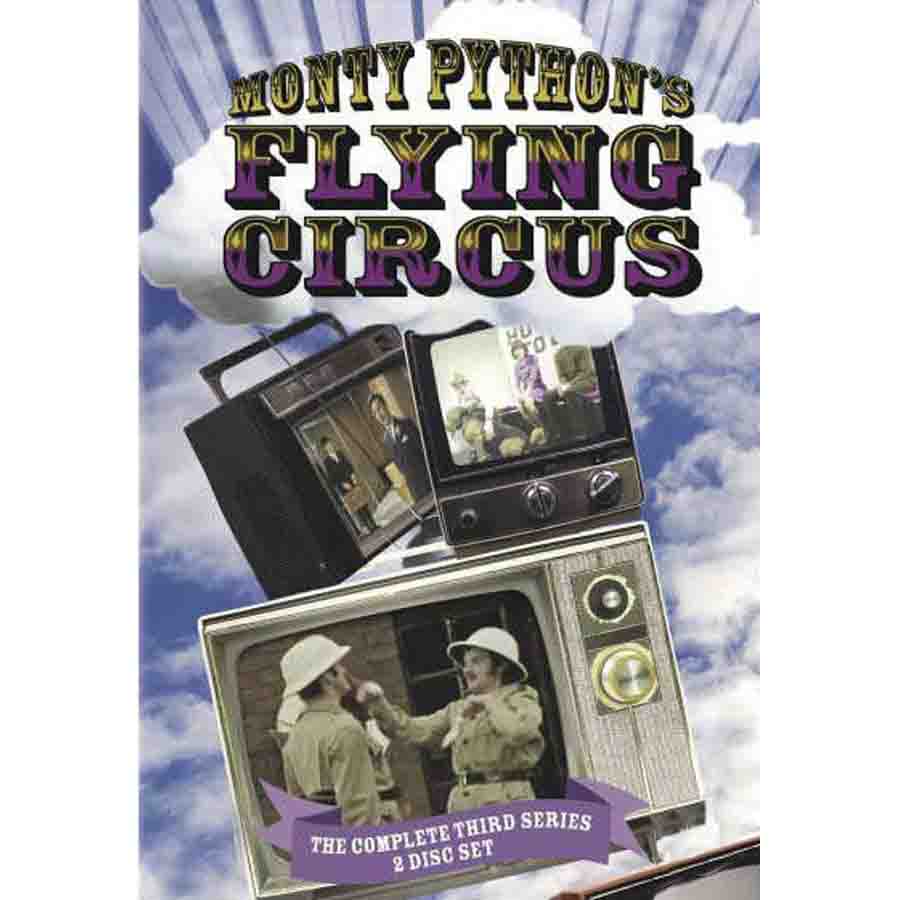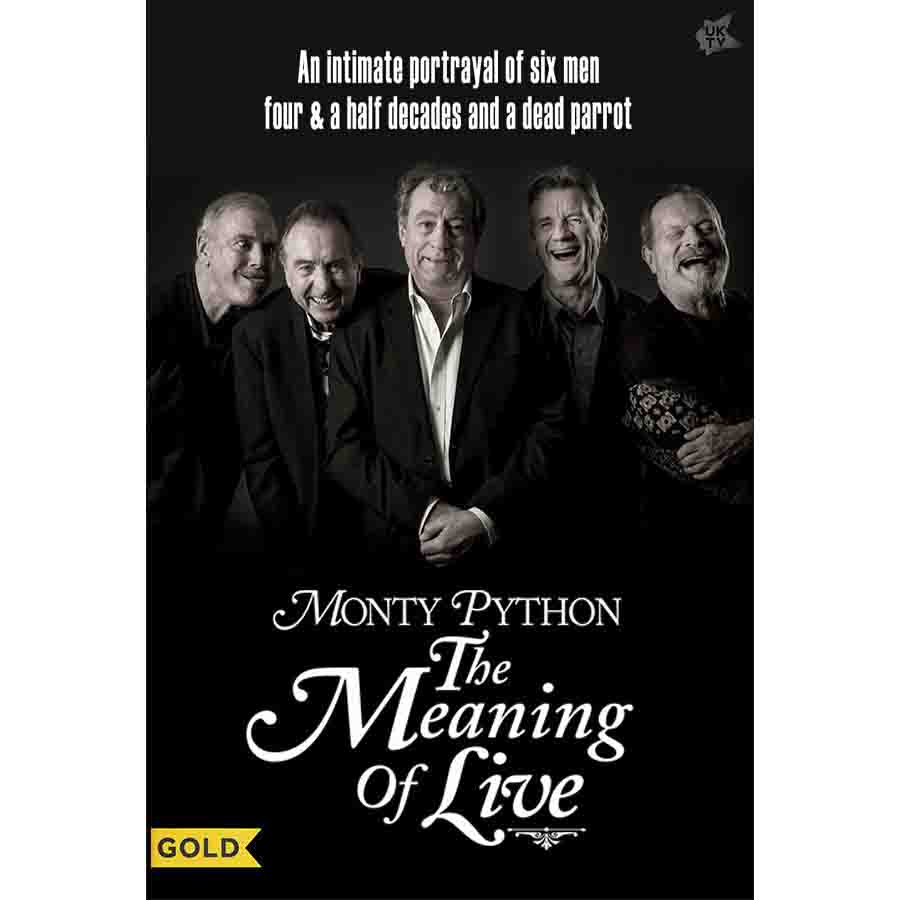Monty Python's Flying Circus, Series 4
"Monty Python's Flying Circus, Series 4"
Director/Producer: Ian MacNaughton
Broadcast on BBC1
Filmed after the completion of "Holy Grail," the fourth series (whose title was shortened to just "Monty Python") constituted just six episodes. John Cleese had already expressed his desire to move on to solo projects ("Fawlty Towers" would premiere on the BBC in September 1975), and so he does not appear, although he received a writing credit for his contributions with Graham Chapman.
Series Highlights
Episode 40, "The Golden Age of Ballooning" (Original air date: 31 Oct. 1974) – The Golden Age of Ballooning, Featuring the Montgolfier Brothers; Louis XIV, George III and Ferdinand von Zeppelin; The Norwegian Party
Episode 41, "Michael Ellis" (Original air date: 7 Nov. 1974) – Buying an Ant; Ant Poetry Reading; Toupee Hall; Various Endings
Episode 42, "Light Entertainment War" (Original air date: 14 Nov. 1974) – "Up Your Pavement"; RAF Banter; Courtmartial; Programme Planners; Programme Planners' Conference; The Last Five Miles of the M2; Woody and Tinny Words; Show Jumping; "When Does a Dream Begin?"
Episode 43, "Hamlet" (Original air date: 21 Nov. 1974) – "Hamlet"; Bogus Psychiatrists; "Nationwide"; Police Helmets; Father-in-Law; Boxing Promoter; Piston Engine; Queen Victoria Handicap
Episode 44, "Mr. Neutron" (Original air date: 28 Nov. 1974) – Postal Box Dedication; Mr. Neutron; "Conjuring Today"
Episode 45, "Party Political Broadcast" (Original air date: 5 Dec. 1974) - Most Awful Family in Britain; Icelandic Honey Week; Waiting Room Stabbing; The Brigadier and the Bishop; The Man Who Finishes Other People's Sentences; David Attenborough and the Walking Tree of Dahomey; The Batsmen of the Kalahari
The Making of
Though Cleese's absence is palpable, there is still some stellar material, including the "Light Entertainment War" episode (in which RAF pilots cannot understand each other's banter), "Mr. Neutron" (in which a supposed alien agent of world domination must put up with tiresome suburban housewives); and "The Most Awful Family in Britain 1974 Competition" (in which the Garibaldi Family only manages to score a disappointing 15 on the disgustometer).
Given Cleese's departure, the level of surrealism – attributable to the Michael Palin-Terry Jones writing team – was also quite high, such as a bit in which a post office official, dedicating a new mailbox, delivers a long, droning speech about its uses ("to post letters, post-cards and small packages”), which he then repeats in French ("la poste les lettres, les cartes-postales, et de petits paquets"), and then in German …
Lawsuit
While the first three series of "Monty Python's Flying Circus" were sold to non-commercial public television in the United States (which broadcast them pretty much as-is), the six episodes of the fourth series were bought by the commercial network ABC, which intended to air them as two 90-minute late-night specials.
Unfortunately, in addition to cuts made for time (to accommodate about 24 minutes of commercials for each special), the network's censors also slashed material for supposed "broadcast standards" – ludicrously eliminating words such as "damn," "hell" and "naughty bits"; jokes ("He used to go through four Jehovah's Witnesses a day"); and entire characters (one of the ordered cuts included "Entrance of man in wheelchair with sword in head, deleted to eliminate offensive references to handicapped individuals"). Punchlines were cut, making jokes incomprehensible. Python was surreal and stream-of-consciousness, but ABC's Python was head-shaking.
The first "Wide World of Entertainment" special, broadcast on 3 October 1975, contained "The Golden Age of Ballooning," "Mr. Neutron," and "Party Political Broadcast." When the Pythons later reviewed a tape of the show sent to them by Nancy Lewis, their U.S. manager, they were aghast, and sought an injunction against ABC's planned broadcast of the second special.
Thanks to a clause buried in the Pythons' original contract with the BBC, edits to the broadcasts were not permitted without their approval, and so they sued ABC at the United States Court House in New York's Foley Square. Terry Gilliam and Michael Palin appeared in court on behalf of the group. They argued that the edited programs did not constitute "Monty Python," and therefore broadcasting them would damage the group in the eyes of its audience. The edited programs could also potentially alienate a larger audience outside of the PBS stations' markets (for whom the ABC shows represented their first exposure to the group), thus jeopardizing the future sale of Python books, records and films.
ABC, which held that its cuts did not distort the Pythons' material, argued that dropping the planned broadcast of the second special would damage the network in the eyes of its affiliates and the public.
Eventually, the judge and all parties sat in the jury box to watch a screening of two versions of "Light Entertainment War": first, as originally run on the BBC, and then as it would appear as part of "Wide World of Entertainment." Nearly eight minutes were cut from the latter.
"I think their biggest mistake was letting us show our version before they showed their version," said Gilliam. "Ours comes out, we get the laughs. Then they show their version and there's no laughs. Not only has it been chopped up badly, but it's old material, it's not as funny as the first time. That's just dumb! If they'd shown theirs first, maybe they would have got the laughs so when they showed our stuff maybe ours would have looked long-winded. [The feeling could have been], maybe ABC did the right thing – they weren't trying to ruin it, the stuff deserved trimming."
Judge Morris Lasker favored ABC in his decision partly because of the network's claims of damages that could be incurred, and partly because of questions about copyright. [The Pythons held copyright over the scripts, but the BBC owned the copyright of the performances of those same scripts.] But by the time the case reached the U.S. Court of Appeals, ABC's second compilation had already aired, on 26 December 1975, thus making moot its claims of potential damages. The appellate judges were then concentrating on matters of copyright, and whether ABC's showing of "Monty Python" was a mislabeling of inferior goods, illegal under the Lanham Act.
Python and ABC (in conjunction with the BBC and Time-Life, the show's distributor) ultimately reached a settlement, which awarded the Pythons full rights to all 45 TV episodes. The fourth series was eventually sold to PBS in the States, "naughty bits" intact.
A footnote: The ABC edit was nominated for a 1976 Emmy Award for Outstanding Special - Comedy-Variety or Music.
By David Morgan, 2014
AVAILABLE FOR PURCHASE HERE
